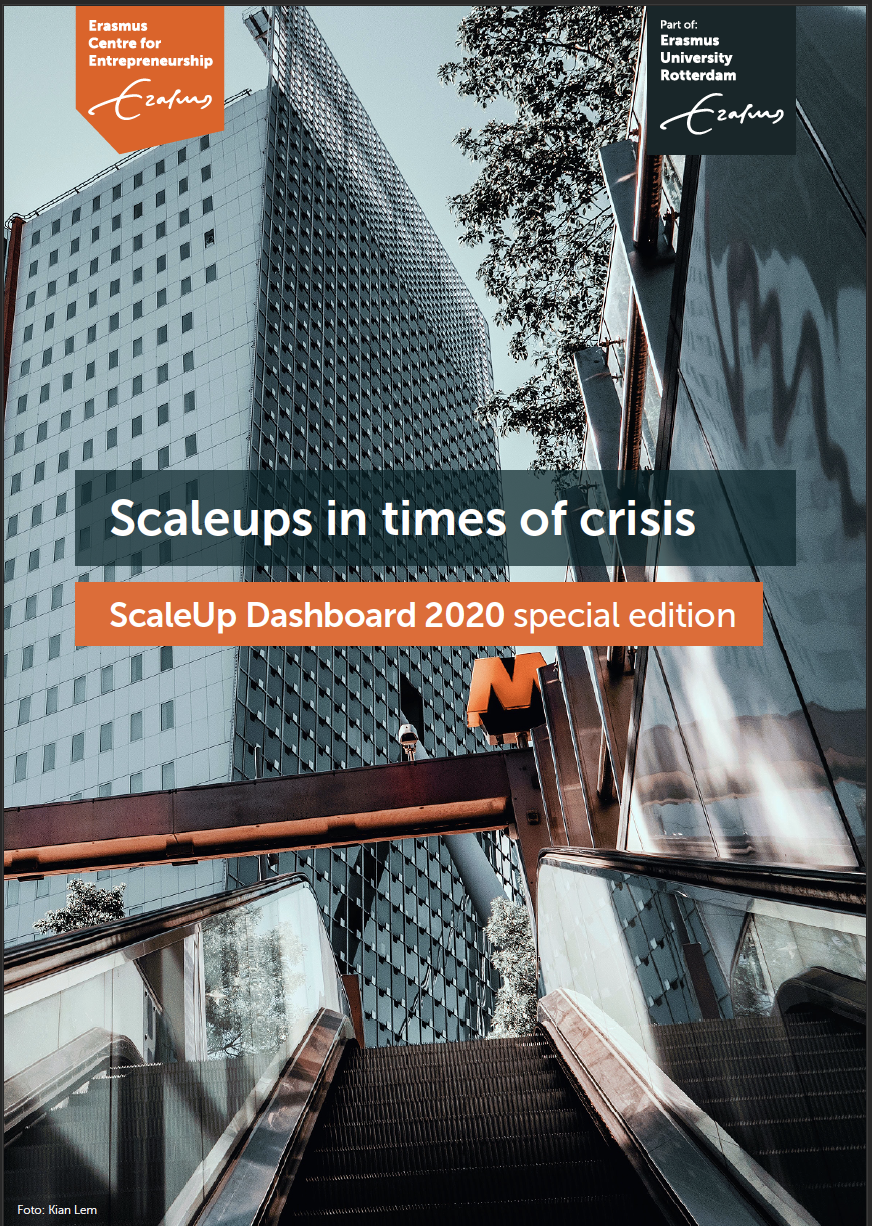Growing in times of crisis: get the best out of your employees
With most of us losing count of how many extended lockdowns we still have to endure, how can companies keep their employees motivated to ensure that they continue growing in such a challenging time? In the ScaleUp Dashboard 2020 special edition ”Scaleups in times of crisis”, Prof. Dr. Tom Mom, Professor of Strategic Growth and Implementation at Rotterdam School of Management, Erasmus University, shares insights into how we should tap into intrinsic motivation to help our teams stay resilient during the coronacrisis.
Maintaining high-growth during a crisis requires the right motivation in your people. Without a motivated team, it becomes difficult to successfully deal with a crisis and at the same time achieve ambitious goals. But how do you keep your employees motivated and engaged in such an unusual situation, especially when everybody is working remotely? Research can help us with several useful insights. First of all, it is important that your employees are pushed by their own internal motivation, also known as intrinsic motivation. When people are intrinsically motivated, they act out of their own will and therefore enjoy freedom of choice. On the contrary, people act out of extrinsic motivation when their decisions are based on a sense of necessity and experience external pressure.
From relevant research¹ in the field, we know that intrinsic motivation leads to more proactivity and creativity in a team; in other words, to more entrepreneurial behaviour. On top of that, intrinsic motivation can make the difference during challenging circumstances, fostering tenacity in situations of distress and preventing changes from appearing as a threat. The best part is that you can enhance intrinsic motivation in people and thus increase it. You can do this by promoting three aspects in your team: competence, autonomy and social cohesion.
Competence
If you think that you cannot do something or that you cannot exert any influence, your motivation to walk the extra mile often remains low. It is therefore important to give positive feedback to each other. Progress and merit should always be recognised, especially during a crisis. If your employees have done a good job, learnt new things or developed themselves, give them the right credits. If they made the team progress, improved the quality of their work or increased the satisfaction of your customers, give them positive feedback. By celebrating (small) successes, you increase the commitment of people to improve. Keep in mind that not everything immediately goes perfectly and that is not bad if quantitative results lag behind. What is important is to emphasise personal growth.
Autonomy
A prerequisite for intrinsic motivation is that people feel free to take their own choices. This can be enhanced by letting your employees set their own goals and, most importantly, determine how you will achieve them together as a team. Don’t tell them how to do things, but help them set the right objectives while ensuring they are challenging enough. Involve your people in creating different scenarios for the coming months and let them pick up their role in such scenarios. Furthermore, an important condition for autonomy is that people have sufficient knowledge and information to make the right decisions. In other words, your success will not only be determined by external factors, such as the crisis or your performance on the market, but also by how fair and transparent you are when sharing information about what is happening.
Social connection
Meeting the need for social cohesion is perhaps the most important precondition for intrinsic motivation and coping with change and uncertainty. It is crucial that people feel that they form a close-knit group so that they care for and stand up for each other. This may be particularly challenging when your team is working from home and are detached from each other. Make sure you continue to communicate clearly what is happening. Be honest about the challenges too. Trust, honesty and solidarity are paramount. This ensures that people can more effectively deal with the new situation and take on the new challenges with more confidence.
¹The founders of this research are Richard Ryan and Edward Deci, who developed the Self-Determination-Theory on this basis.
 Want to read more scaleup stories and find out more about the scaleup landscape in times of crisis? Visit our ScaleUp Dashboard webpages (in English and Dutch) or directly download your own English copy of “Scaleups in times of crisis” here and the Dutch version here!
Want to read more scaleup stories and find out more about the scaleup landscape in times of crisis? Visit our ScaleUp Dashboard webpages (in English and Dutch) or directly download your own English copy of “Scaleups in times of crisis” here and the Dutch version here!
Questions? Get in touch with us via research@ece.nl!
